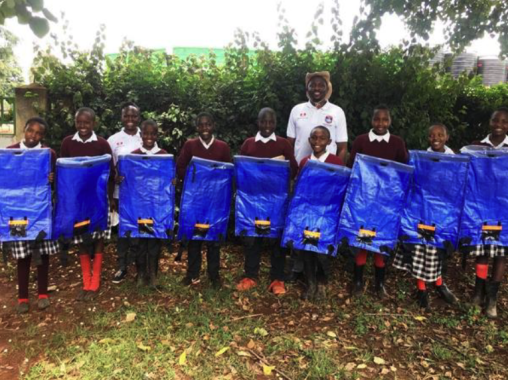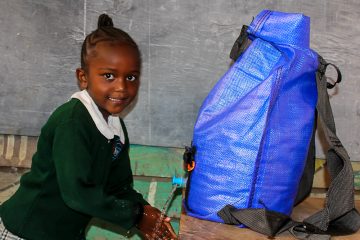Mount Kenya University’s Co-Creation Strategies for Improving the Health of Children and Access to Safe Water in a Time of Crisis (Kenya)
Mount Kenya University (MKU), in partnership with the Partners for Care, has implemented highly impactful interventions in rural East Africa to improve the quality of water and sanitation services. In an effort to prevent the spread of waterborne illnesses including Tunga penetrans, a parasitic insect commonly referred to as jiggers, the project installed water backpacks to areas lacking access to clean water, set up hand-washing stations, and local clinics to treat jiggers.

The partnership between MKU and PFC was formed in 2015. PFC works within East Africa to eliminate preventable diseases including malaria, HIV/AIDS, waterborne illnesses, and malnutrition. The partnership was an opportunity for PFC to leverage on the presence of the MKU in various parts of the country and to make use of the project management and research expertise of faculty and staff. The partnership presented MKU with an opportunity to extend their reach to the community through joint activities with PFC. MKU students serve as volunteers and interns and faculty and staff serve as knowledge partners and consultants.
Dr. Peter Kirira of MKU notes that, “41 percent of Kenyans lack access to basic sanitation solutions.” Populations in rural areas are often unable to reach piped water infrastructure, leading to waterborne disease and parasites. Dr. Kirira describes the significant issue of jiggers, noting, “It is reported that over 2 million people are infested by jiggers…In 2020, there were about 37,523 cases of jigger infestation recorded in health facilities across the country.” Compounding this, the COVID-19 pandemic has also “paralyzed service delivery [in the health sector] due to overstretched health facilities especially in the HDU and ICU units.”
Impacts
The MKU partnership with Partners for Care has made incredible strides in addressing inadequate access to water sanitation resources and health services. The health care team successfully eradicated jiggers from 26 primary schools, treated 3,542 people for jigger infestation, and trained 593 families on jigger prevention and control techniques. Additionally, the partnership distributed “over 5,000 water backpacks as hand-wash units to prevent the spread of COVID-19” and “1,000 water backpacks in 66 special needs and primary schools in Laikipia County.”

The partnership faces challenges such as access to financial support and student participation. However, through strategies such as “increased systematic engagement with vulnerable groups” and strengthened relationships with communities and local government, the project has reached key populations and sustained their work. Dr. Kirira emphasized the importance of the University Award Community of Practice, noting, “sharing ideas, experiences and strategies are important building blocks in establishing a community of practice through identifying the best approach within the local context.” One of the many valuable insights gained through the program has been the power of mainstreaming civic engagement activities within institutions.